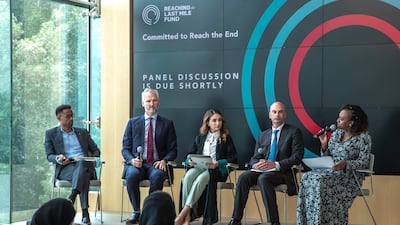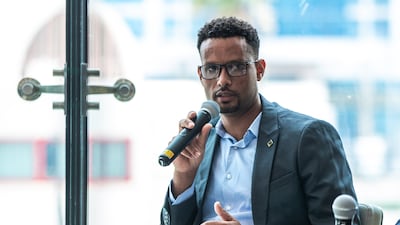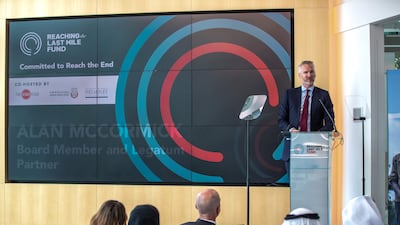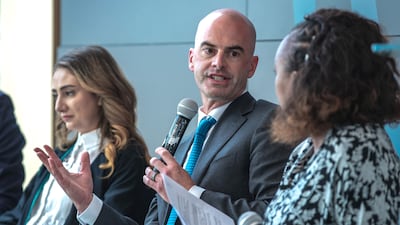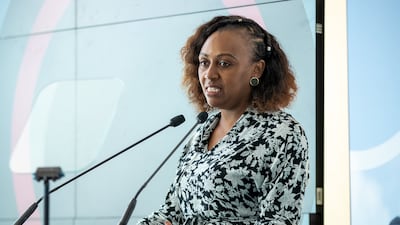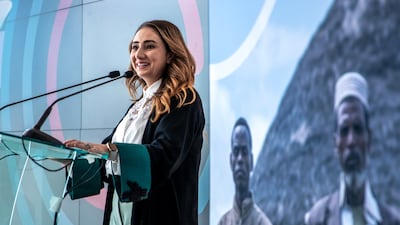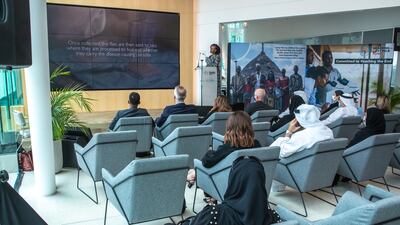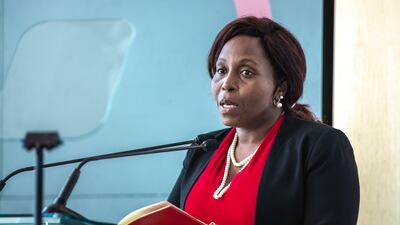Ethiopia could be free of a disabling parasitic infection in as little as three years with the help of a UAE-led initiative.
Reaching the Last Mile Fund has provided the country and several others with significant financial assistance to tackle neglected tropical diseases.
Fikre Seife, neglected tropical diseases programme leader for the Ministry of Health in Ethiopia, said the total eradication of lymphatic filariasis was now in sight within its borders.
The RLMF is a 10-year, $100-million (Dh367.3 million) initiative established in 2017 by Sheikh Mohamed bin Zayed, Crown Prince of Abu Dhabi and Deputy Supreme Commander of the Armed Forces, along with other supporters, including the Bill and Melinda Gates Foundation.
It works in several countries to eliminate NTDs, focusing on river blindness and lymphatic filariasis and is administered by the End Fund, a philanthropic investment platform focused on tackling the five most common NTDs.
Lymphatic filariasis is caused by tiny threadlike worms, which live in the human lymph system. It is spread from person to person by mosquitoes. Sufferers are often shunned by their communities and unable to work because of their disability.
Mr Seife told The National the funding means the country is again on track to eliminate the parasitic infection by 2027, after its efforts were disrupted by the withdrawal of aid from the UK.
“Due to the early termination of UK government aid because of budget cuts, there was a financial gap, so right now we are very lucky the Last Mile Fund has secured funding for the coming three years,” said Mr Seife.
“There is a high chance to eliminate it.”
He was speaking at an event in Abu Dhabi on Tuesday to announce a significant funding boost for RLMF, a $22.5-million-dollar investment over the next three years by The Leona M. and Harry B. Helmsley Charitable Trust.
The New York-based philanthropic trust teams up with people and organisations to invest in new ideas or research.
Speaking at the event, Walter Panzirer, a trustee, said the trust was inspired by the RLMF. He said he hoped it would help Ethiopia to achieve its goal of eradication sooner than 2027, in as little as three years.
“Through our $22.5-million-dollar investment, hopefully we will achieve total elimination of LF and river blindness in Ethiopia and the border countries that surround it.
“We expect this to be about a three-year time frame, so we are very ambitious. Collaboration is key. That is what makes the RLMF so attractive to be part of.”
In December, it was announced that Niger would be the first country in Africa to eradicate river blindness after it completed the necessary evaluations to certify the elimination of the disease.
The country said it was preparing the paperwork for World Health Organisation verification.
What is an NTD?
An umbrella term for a group of parasitic and bacterial infectious diseases that affect more than 1.7 billion of the world’s most marginalised and impoverished people.
River blindness is a parasitic infection caused by a worm. It is spread by repeated bites from a type of fly which lives near fast-flowing rivers.
The infection causes severe skin irritation, itching and, ultimately, irreversible blindness. It mainly affects African countries.
